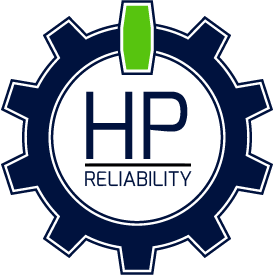Risk with David Albrice
While doing asset management, the organizations are always keen to balance the outcomes between performance, cost, and risk. Risk is a huge part of asset management programs and can be defined as the uncertainty that an organizations faces to achieve its objectives. There are lot of things happening in an organization, so there are a lot of uncertainties all around. With innovation and growth opportunities, comes the risk as well. The risk is mostly considered in terms of negative experiences but it can lead to positive experiences too. Whenever you take a risk, there s always a chance that things could go either way.
In this episode, we covered:
- Why is risk a huge part of asset management programs?
- Why is it important to manage risk with optimized trade-offs?
- What are the risk types and how can we manage them effectively?
- And much more!
That is why it s very important to manage risk with optimized trade-offs that will ultimately lead to better asset management. Risk effects everyone and everything in the organization. There are asset level risks that will be directly related to every system in the organization and are managed in terms of cost, failure, and performance of the systems. Then there are enterprise level risks that primarily focus on unions, cross-sectional departments, and everyone that could affect the overall performance and reputation of the organization. Both types of risks are cascaded throughout the organization to manage them properly.
Whenever we talk about risk types and how to manage them effectively, it starts with risk architecture and it includes three things. These are the risk management principles, the risk management framework, and the risk management process. The principles consist of all the rules and regulations that ensure the usage of risk in everything an organizations does. Risk management framework reflects the commitment of the organization to effectively manage every risk and then the process follows with its design, implementation, and continuous improvement in that process. It also covers all the specifics of the risk management and risk register.
The organizations can start quantifying the risks using a qualitative approach first but as they mature, it becomes a bit easier to assign probability numbers with the risks to assess its impact efficiently. The level of maturity depends on the quality of data that an organizations has. Even mature organizations struggle with quality of data, so lack of data is always a problem in risk management. That s why the organizations should implement consistent procedures to avoid difference of opinions. Above all, the organizations should be able to understand the cause and consequences of a distinctive hazard event and document their descriptions if they can.
There are different types of risk management approaches. In some organizations, a certain department develops a framework and it becomes a standard in the organization. In mature organizations, the frameworks are designed by leadership with the help of SMEs. Other organizations prefer a hybrid approach. As risk management ultimately helps in smart decision making, it can be extremely rewarding, and challenging at times. You can just start simple and then take it from there as it s a journey. The organizations can start building a framework around the most obvious of risks such as safety and stakeholder management and then expand the list over time. In the end, it s all about risk awareness and tying those risks to organizational objectives.
Eruditio Links:
David Albrice Links:
- David Albrice LinkedIn
- Assetinsights.net
- Asset Management with David Albrice
- The Black Swan: Second Edition: The Impact of the Highly Improbable
- Visualizing & Vision-izing ISO55001 (Part 1)
- Visualizing & Vision-izing ISO55001 (Part 2)
- ISO 31000
Rooted In Reliability podcast is a proud member of Reliability.fm network. We encourage you to please rate and review this podcast on iTunes and Stitcher. It ensures the podcast stays relevant and is easy to find by like-minded professionals. It is only with your ratings and reviews that the Rooted In Reliability podcast can continue to grow. Thank you for providing the small but critical support for the Rooted In Reliability podcast!
The post 178-Risk with David Albrice appeared first on Accendo Reliability.

